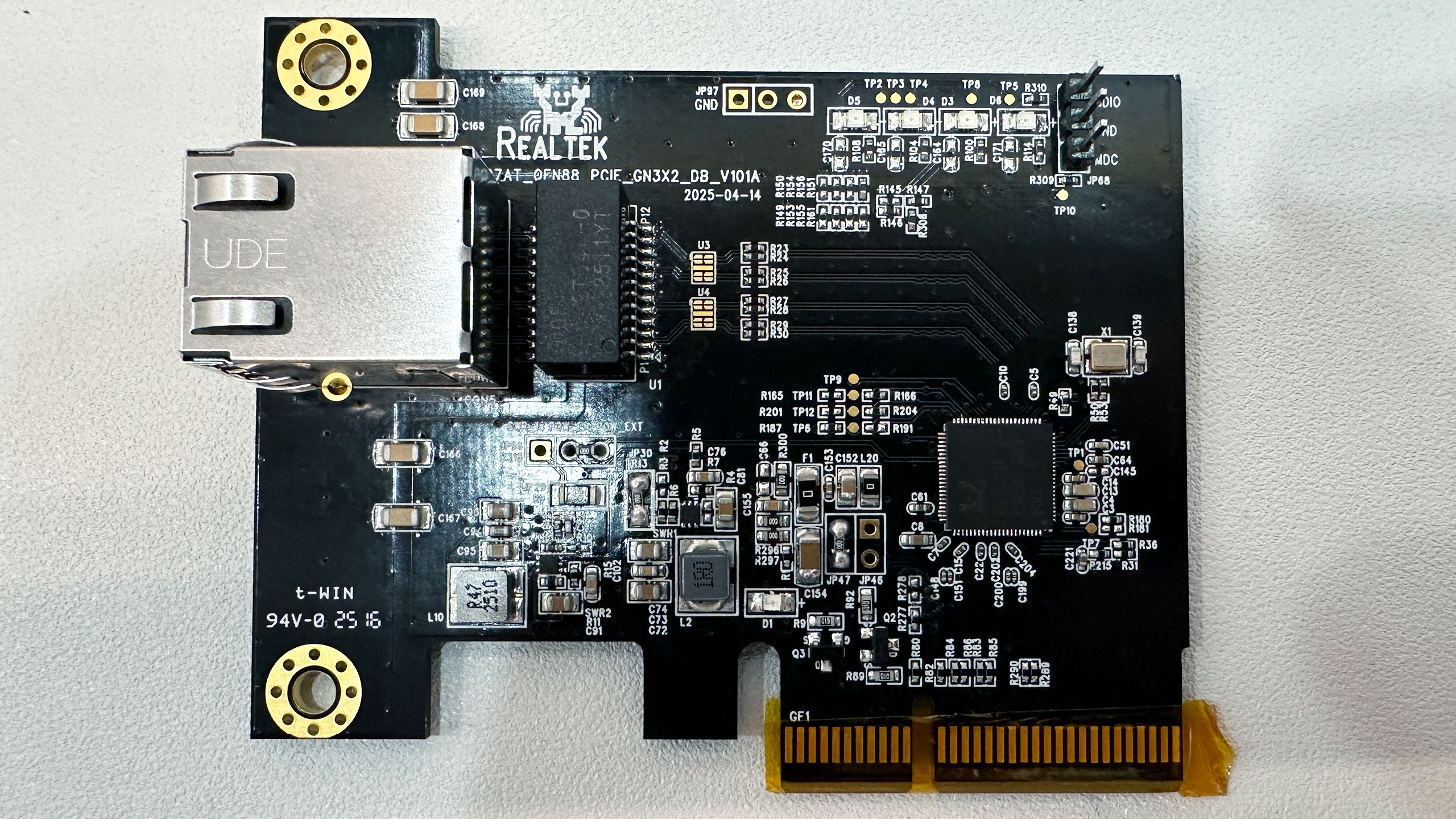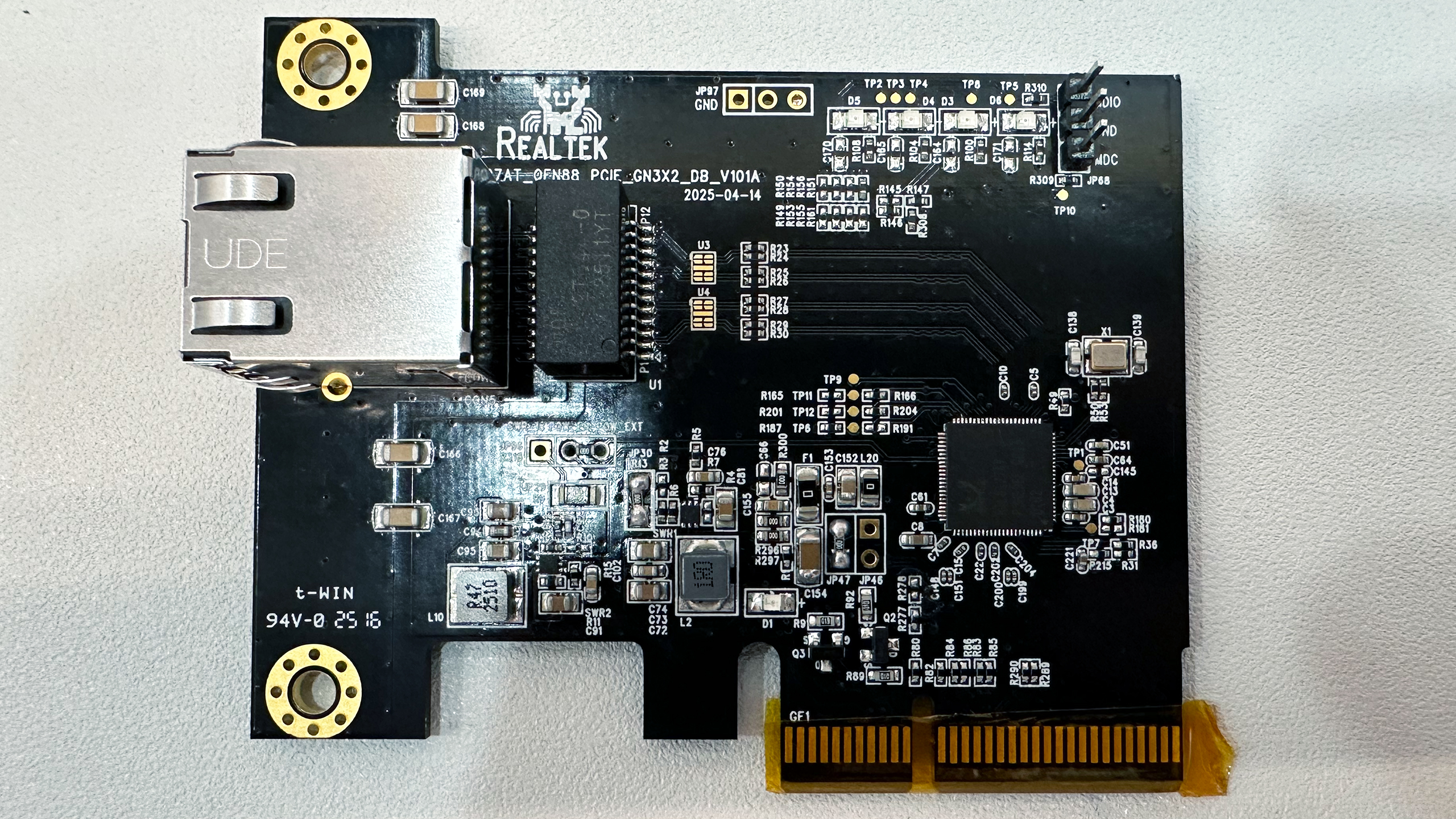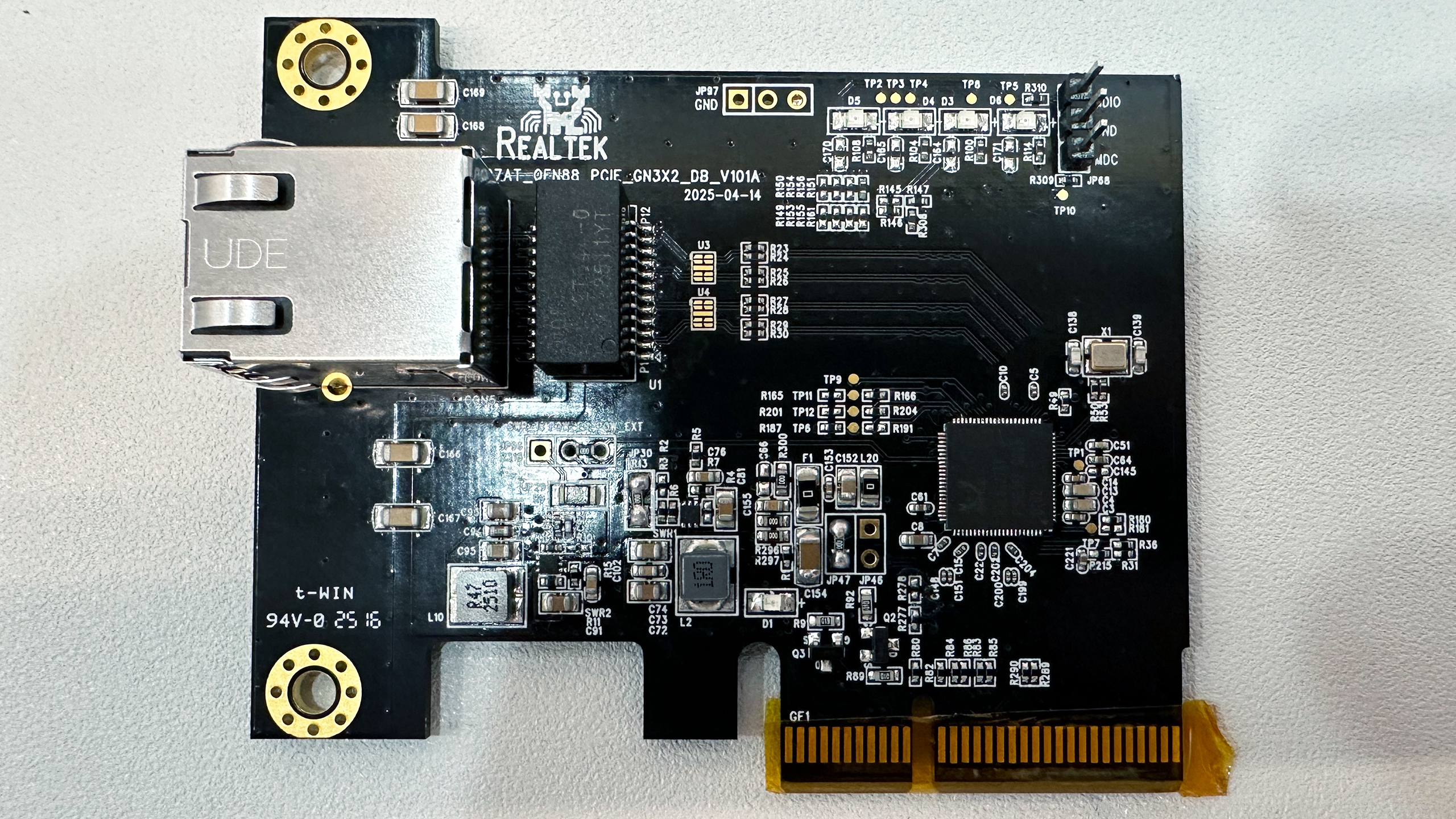Realtek's $10 tiny 10GbE network adapter is coming to motherboards later this year
Realtek's $10 tiny 10GbE network adapter is coming to motherboards later this year

Realtek's $10 tiny 10GbE network adapter is coming to motherboards later this year

